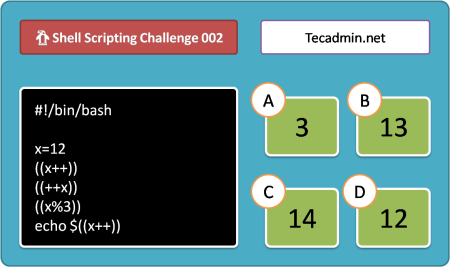Shell scripting, particularly in Bash (Bourne Again SHell), provides several methods to extract these components. Let’s explore some of the most effective techniques.
Before diving into the technicalities, it’s crucial to understand the structure of a file name. Typically, a file name consists of two main parts: the base name and the extension, separated by a dot (.). For instance, in document.txt, document is the base name, and txt is the extension.
Extract Filename and Extension
To extract the filename and extension from a file path in a shell script, you can use the `basename` command.
Here is an example of how you can use basename to extract the filename and extension from a given file path:
#!/usr/bin/env bash
# Define a file path
filepath="/var/log/mail.log"
# Extract the filename and extension from the file path
filename=$(basename "$filepath")
# Extract the extension from file path
extension="${filename##*.}"
# Extract the filename without the extension
filename="${filename%.*}"
In this example, `$filepath` is the file path that you want to extract the filename and extension from. The basename command extracts the filename and extension from the file path and stores it in the filename variable.
The extension variable is then set to the string after the last . character in the filename variable, using the ## parameter expansion operator.
The filename variable is then set to the string before the last . character in the filename variable, using the % parameter expansion operator.
This will extract the filename and extension from the file path and store them in the filename and extension variables, respectively.
You can then use these variables in your script as needed. For example, you might use the filename and extension variables to check the type of a file or to rename it.
Advanced Techniques
For more complex scenarios, such as dealing with files with multiple dots or no extension, you might need to employ more sophisticated approaches:
1. Handling Multiple Dots
file="complex.name.file.txt"
filename=$(basename "$file" .txt)
extension="${file##*.}"
echo "Complex filename: $filename"
echo "Extension: $extension"
2. Files Without an Extension
You can modify the parameter expansion to handle cases where a file might not have an extension:
file="filename"
if [[ "$file" == *.* ]]; then
extension="${file##*.}"
else
extension="No extension"
fi
echo "Extension: $extension"
Other Practical Examples
1. Get Filename without Path
First, remove the full file path from the input filename. For example, if the filename input is as “/var/log/mail.log” then extract the full filename mail.log only.
#!/usr/bin/env bash
filepath="/var/log/mail.log"
filename=$(basename "$filepath")
echo "Full filename: $filename"
The output will be:
Full filename: mail.log
2. Filename without Extension
Now extract the filename without an extension from extracted full filename without a path as above.
#!/usr/bin/env bash
filepath="/var/log/mail.log"
filename=$(basename "$filepath")
filename="${filename%.*}"
echo "Filename is: $filename"
The output will be:
Filename is: mail
3. Get Extension Only
Now extract the file extension without name from extracted full filename without path.
#!/usr/bin/env bash
filepath="/var/log/mail.log"
filename=$(basename "$filepath")
extension="${filename##*.}"
echo "Extension: $extension"
The output will be:
Extension: log
4. Extract Directory Path
You can also use the `dirname` command to extract the directory path from the full file path. For example:
#!/usr/bin/env bash
filepath="/var/log/mail.log"
dir=$(dirname "$filepath")
echo "Directory: $dir"
The output will be:
Directory: /var/log/
Conclusion
Mastering the extraction of filenames and extensions in shell scripts can significantly enhance your capability to automate and manage file operations efficiently. By leveraging Bash’s built-in features like parameter expansion, along with utilities such as basename and dirname, you can create robust scripts to handle a wide range of file manipulation tasks. Remember, the key to proficiency in shell scripting lies in practice and experimentation, so don’t hesitate to apply these techniques to your projects.

5 Comments
I was trying your script for extracting the file extension for a file, but there’s some files that have two exclamation marks in the filename (those were the titles on the CD, so ripping them to .flac or .mp3 will carry those over). If I try to run the script on a group of files, the first one of these it hits recalls the previous command and parameters.
I would need a way to either clear the value within the script or tell it to ignore them.
filenames (full path) examples:
./Frozen Starfall – Babbe Music/BLOSSOMING DANCEFLOOR (同人音樂)(東方)[Babbe Music]/10. BAD, BAD APPLE!!.flac
./AlstromeriaRecords/Lovelight/02 – Bad Apple!! – Alstroemeria Records feat. nomico.flac
./AlstromeriaRecords/bad-apple-10th-anniversary-phase2/10. Bad Apple!! (ARM×孤夢想 Remix).flac
What is the specified command name was a link name, and you want the actual file name?
it is got failed if the file is having space. can you fix and hell us
Enable full directory path in double quote if any of the directory or filename have space.
Fails if no ‘.’ is present in $filename. The result for $ext should be nil.
E.g.
path=”/etc/apache2/noext”
filename=$(basename “$path”)
ext=”${filename##*.}”
echo $ext
noext